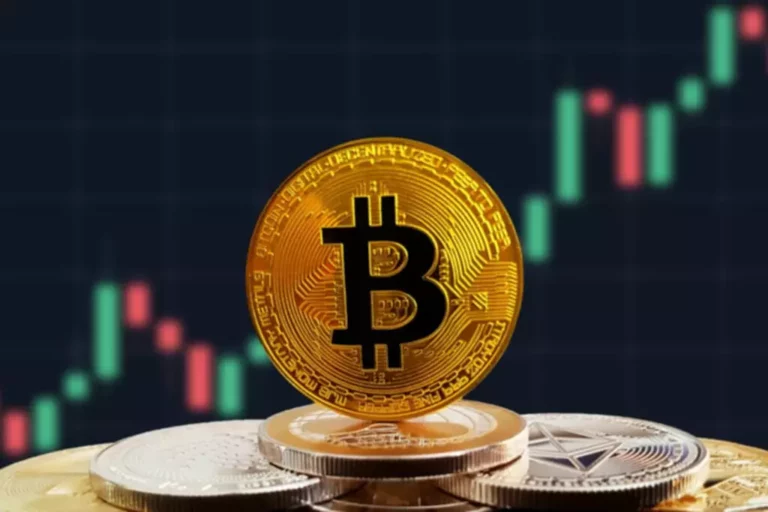CLPs act as intermediaries between the buyer and seller, ensuring that there is always a buyer for every seller and vice versa. In this blog section, we will explore the role of Core Liquidity providers and how they affect the forex market. Many forex market makers also watch orders and call levels for clients, and they stand ready to execute market orders on their behalf.
Due to their involvement with servicing corporations that require foreign exchange transactions, large commercial banks remain the principal liquidity providers in the forex market. It is important to note that they do not always quote their clients and other professional counterparties the prevailing market price. Instead, they generally quote a two-sided price based on how they anticipate currency movements will take place and what they think the counterparty might be interested in doing.
Financial markets remain liquid—meaning traders can consistently buy and sell assets on demand—thanks to core liquidity providers. These are typically banks and other financial firms that buy and sell large quantities of assets to ensure their availability. These firms effectively act as market makers and their business takes advantage of the fact that the majority of retail traders lose money when they trade. Most online forex brokers and many commercial and investment banks with active foreign exchange divisions are market makers in a variety of currency pairs.
The trader submits an order to a broker, and then the broker submits it to their liquidity provider. Without ample liquidity, the global foreign exchange market would have only a fraction of its activity, speed, and growth potential. Conversely, sufficient liquidity will enable forex traders to sell and buy at favorable prices and on time. These LP divisions within banks, due to their constant dealings with corporations that require foreign exchange transactions, are in a privileged position to exert the role of principal liquidity providers. They generally quote a two-sided price based on how they anticipate currency movements will take place and what they think the counterparty might be interested in doing.
The Ultimate Guide To Identify Areas Of High Interest In Any Market
This spread represents the difference between how much a broker is willing to pay for currency when buying (called “bid”) and selling (called “ask”) it. When making your choice, consider factors such as reputation, liquidity, technology, pricing, and customer support. By carefully evaluating your options and choosing a high-quality CLP, you can ensure that your trades are executed efficiently and profitably. This is one of the reasons that many larger forex traders tend to use ECN/STP forex brokers. In the forex market, the term “market maker” can refer to both a company that makes markets in currency pairs, as well as to an individual trader working at such a company who performs this function on its behalf. One such benefit is that it can help to stabilize the market by ensuring that there is always a buyer or seller available to trade.

With an ECN/STP broker, the trader can be sure that the trade is being executed ultimately by a Tier 1 liquidity provider with the executing forex broker not taking any part or side in the transaction. Their cutting edge technology solution allows their clients access to institutional liquidity https://www.xcritical.com/ pools and benefit from the most competitive spreads in the industry. One type of arrangement that has become increasing popular is the Prime of Prime (PoP) broker arrangement. Prime of Prime refers to a company that has an established relationship in place with a global Prime broker.
Financial Institutions
Imagine a scenario where a significant economic shift affects the currency market. Various circumstances like global conflicts, monetary policies, and technological disruption can cause turmoil in the forex landscape. When this happens, market volatility can reach unforeseen forex broker liquidity provider heights and threaten the vitality of forex. The concepts of liquidity and market volatility are strongly tied together in the forex environment. You can think of them as two sides of the scale – when liquidity goes up, volatility tends to decrease, and vice versa.
- They can help to increase trading activity, reduce spreads, and provide support during periods of high volatility.
- The amount of liquidity provided by a CLP is another critical factor to consider.
- After understanding the significance and measurement of liquidity, we will now look at its benefits to traders.
- Broker-dealers are also important CLPs, as they provide liquidity to their clients and help to ensure that the market remains efficient.
We’re also a community of traders that support each other on our daily trading journey. We should not ignore liquidity as it directly correlates to the conditions in which a particular asset will be priced, under what dynamics and how much it is expected to be moved on average. As a consequence, this inevitably will influence our trade management given that the size of our stop loss or profit taking targets will also have to be adjusted in accordance. You cannot treat in the same manner, trade management wise, a EUR/USD 1-hour trade with a highly active participation by a zillion participants than the EUR/Turkish Lira.
Currency Market Liquidity
This ensures that traders can execute trades without significant slippage, which improves market liquidity. By providing liquidity, setting bid-ask spreads, and managing risk, they help to ensure that there is always a fair price for traders to buy and sell currencies. However, the impact of CLPs on price discovery can vary depending on market conditions.

Because your order may not find enough counter-parties at the advertised price. Illiquidity occurs when it is not possible to sell an asset or exchange it for cash without a significant loss of value. Liquidity providers or market makers seek to avoid this by serving as intermediaries in the financial markets. Core liquidity providers make a market for an asset by offering their holdings for sale at any given time while simultaneously buying more of them. But it also permits investors to buy shares whenever they want to without waiting for another investor to decide to sell.
The success of every broker, crypto exchange, and other businesses related to financial markets depends on clients directly. The more clients are involved and the more active they are, the more profits a company gets. As for traders, they need to access an opportunity to buy and sell assets instantly by the market prices. When an asset is liquid, traders face no gaps and price slippage, being capable to rely on diverse strategies.
Another form of news events, scheduled over the weekend, may also create gap risks the following Monday. Developers also intend to develop «shards» of the blockchain to support a broader range of transactions with greater throughput. These could help Ethereum scale up and minimize the high transaction fees that infrastructure managers are now charged. Second, try not to trade during holidays or certain times (such as Tokyo’s closing time).

Trading forex is heavily reliant on liquidity, which makes it one of the key components of this market. Liquidity is a way for traders to easily buy and sell currencies, allowing them to do so without significantly changing their prices. There are several different types of CLPs, including banks, hedge funds, and proprietary trading firms. Banks, for example, are highly regulated and have access to a large amount of capital, making them a reliable source of liquidity. Hedge funds, on the other hand, are more flexible and can take on more risk, which can lead to higher returns. Proprietary trading firms are often more specialized and can offer unique trading strategies that other CLPs may not be able to provide.
A Tier 1 liquidity pool provider opens access to major market makers, including the world’s largest banks, hedge funds, investment funds, etc. As for Tier 2 providers, they may connect a broker to a certain bank or to the pool of several institutions. Volumes of the chosen liquidity pool are important enough, as this characteristic impacts the speed of orders execution. When this notion is related to cryptocurrencies, the definition is somehow different. Such pools comprise tokens that are locked in smart contracts; this is why traders purchase tokens directly from pools.
A newcomer broker faces a string of challenges, including the high level of competition, as the overall number of such companies has surpassed the mark of 3000. Liquidity providers (LPs) are among the most important criteria for a beginner brokerage company. ECNs are designed to provide LPs with a way to trade anonymously with other market participants. That means that the LPs’ orders are matched with the orders of other market participants looking to trade at the same price.
This platform type is generally called an Electronic Communications Network (ECN). Brokers must actively monitor liquidity conditions, especially during volatile market periods. Sudden spikes in volatility can lead to temporary liquidity shortages, potentially affecting order execution quality.

